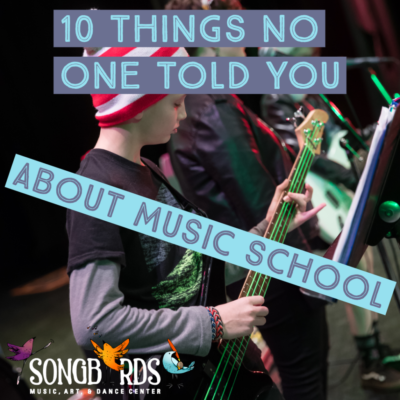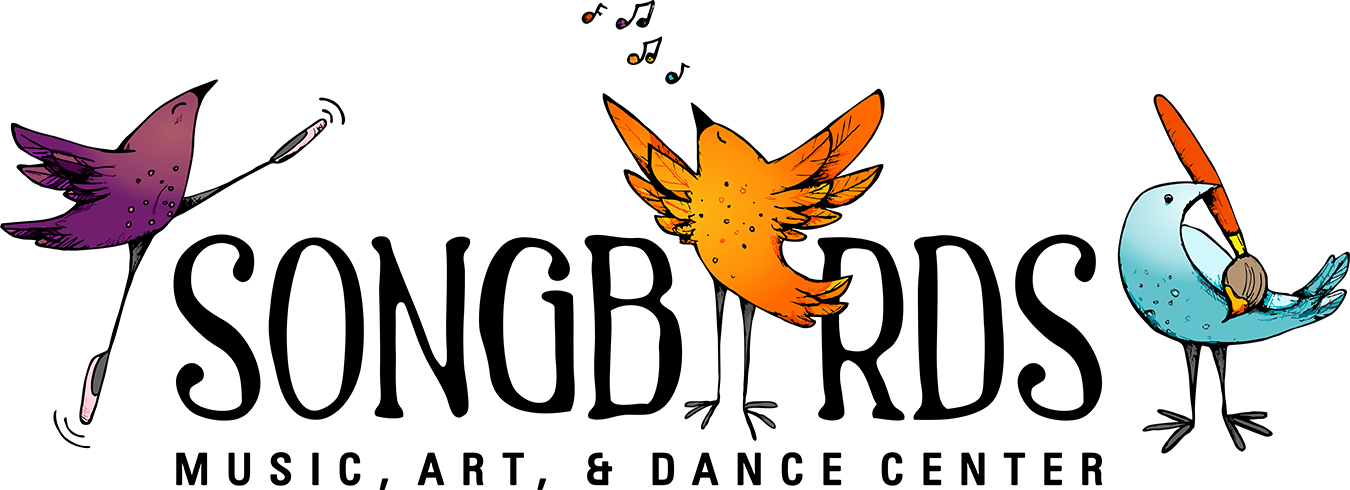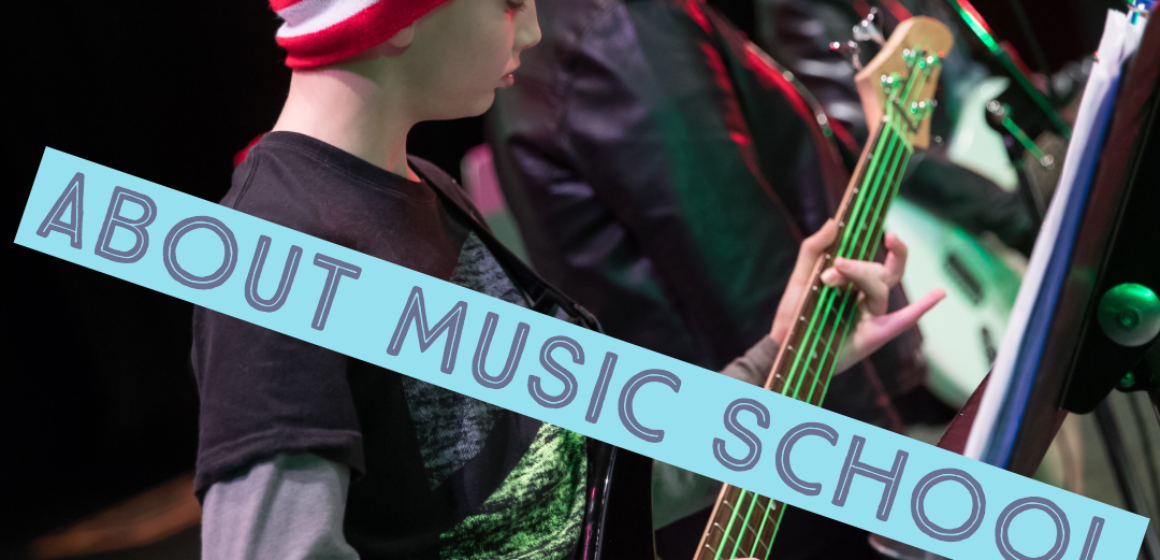10 Things No One Told You About Music School
There are a lot of misconceptions about the difficulty, culture, and utility of most music schools. If you are planning on attending college for music, check out these ten points. I wish that I knew all of these before I went to my university!

1. School doesn\'t matter. Teacher does.
This rule applies to every stage of your musical career. The reputation of the school or institution that you attend will not make you better and doesn’t usually get you a leg up on being hired. It’s all about the teacher. You have to find an instructor that gels well with your personality and pushes you to become better at your craft. It would be a waste to attend the best music school in the country and study with a teacher who doesn’t work well for you.
2. You can learn a lot of it on your own.
Most of the music curricula at universities can be explored and learned on your own time. This is particularly valid for music theory. If you are extra motivated, you can teach yourself a ton of music theory and skills by using the internet and your local library. Skillshare and musictheory.net are great places to start. Working on your own is not a substitute for formal education, but it will give you a great foundation and will keep you sharp in college. Working ahead will also allow you to better prioritize your time and energy while in school.
3. It’s about the time you put in. You won’t magically get better.
Most music school curricula are strenuous, but you can’t rely on this to help you improve. You MUST put in the time to practice to get better. Do whatever it takes – block off daily hours on your schedule, reserve practice rooms, or assign certain days of the week for uninterrupted practice. Many music students coast through college by relying only on their provided lessons or by doing the bare minimum. They still improve, but they rarely have musical careers outside of college. It is completely up to you to decide how much you want to succeed.
4. It’s as difficult as you make it.
The difficulty of music school varies depending on who you ask. If you have a high musical aptitude and are content to coast through your studies, music school will be easy. Conversely, if you take opportunities that present themselves and strive to achieve your short-term goals for improvement, music school will be challenging. To get the most out of your degree, you must work exceptionally hard. Free time should be difficult to find. Before attending, plan out yearly or monthly goals in regard to your ability and general knowledge of your craft. Be open to frequently revisiting these goals and adjusting them if needed. Doing so will guarantee that you will be successful and will maintain a high level of accomplishment.
5. Politics are still a thing.
High schoolers who expect to enter a college free of politics and drama will be sorely disappointed. Most music programs at university are rife with favoritism and some sort of social hierarchy. Graduate students and seniors will always get more opportunities even if they aren’t as technically skilled as their younger colleagues. Conflicts between professors will trickle down to their studios and classes. Subjectivity will be abused when it comes to grading and the distribution of upcoming gigs. It isn’t pretty, but this behavior goes hand-in-hand with most music schools. New students should learn how to assimilate and play the game as quickly as possible in order to win favor with those who have the most power. Politics and favoritism won’t end or be drastically reduced until after college.
6. You need to find your own way.
Those art school stereotypes that you’ve heard hold a grain of truth. Students in music school will see, hear, and experience things that push their boundaries. New students should consider where their personal limits, beliefs, and ideologies lie so as not to be influenced by their peers. You have to maintain a strong moral compass and sense of being before subjecting yourself to music school. Remember to do what you believe will benefit your education the most, even if no one else is doing it. You will often have to forge your own path in order to succeed. It goes without saying, but any type of drugs or addictive substance will only be a detriment to your progress and technical skill. Partaking in drugs does not make you play or perform better.
7. Being well-rounded is vital.
Take as many opportunities as you can without burning yourself out. It is important to learn how to say no, but don’t be afraid to stretch outside of your comfort zone when it comes to professional opportunities. Learn how to play multiple instruments. Try conducting or recording. Improve your language skills and become conversationally fluent in at least one other language. Pick up extra minors of study that complement your major. You need as many feathers in your cap as possible, and you never know when a niche skill will come in handy. For example, singers who only sing will have a much more difficult time finding work than singers who can also play multiple instruments and compose. Adding extra skills to your resume will exponentially increase your value in the workplace.
8. Having a degree won’t guarantee a job. Further degrees won’t either.
In the professional world, no one cares (or should care) where you went to school or what degree you have. It’s all about your product and how good you are at your craft. For example, if your goal is to tour with a famous band as a guitarist, spend all of your free time practicing and getting really good – if not the best – at guitar. A degree won’t matter. If you finish your undergraduate degree and are lost, going for a graduate degree or an associate\'s degree may not be the best course of action. You should analyze what is best for your career. Further degrees won’t guarantee a job either. Please note that there may be exceptions when it comes to working for fusion-type jobs like a desk job at a performance non-profit or a singing professor at a college. If you do want to become a college professor, you need to plan on acquiring at least one doctorate degree.
9. You’ll be extra prepared and will learn how to practice/use your time.
You won’t realize it at the time, but the structure and discipline that is drilled into you at music school will benefit you throughout your entire life. It will help you better organize your schedule and will increase productivity in music and your career. If you work hard at music school, you also passively learn excellent time management. Be prepared for the first time that you attend a rehearsal for an amateur band, orchestra, or choir. It will both mystify and enrage you that no one else has already perfected their music and doesn’t care about starting on time.
10. It’s absolutely worth it.
Most people have a negative disposition towards music school. This comes from years of hearing about artists not getting hired or misconceptions about students being lazy or too crazy for social norms. These beliefs are misrepresented and are not true. Truly, attending music school is absolutely a wonderful and positive experience. If you pour yourself into it, you will graduate with greatly increased skills and the drive to make your loftiest goals a reality. Always stay grounded, but leave yourself open to trying new things and learning in new ways. I have never regretted earning my music degree and am thankful every day for the skills that I learned while at university.
Bonus Tip
If you are the most skilled person in the room, then you are in the wrong room.
Refer to these ten aspects of music school if you are considering attending college for music! Read more of our blogs here. Good luck in your future studies and musical education!

